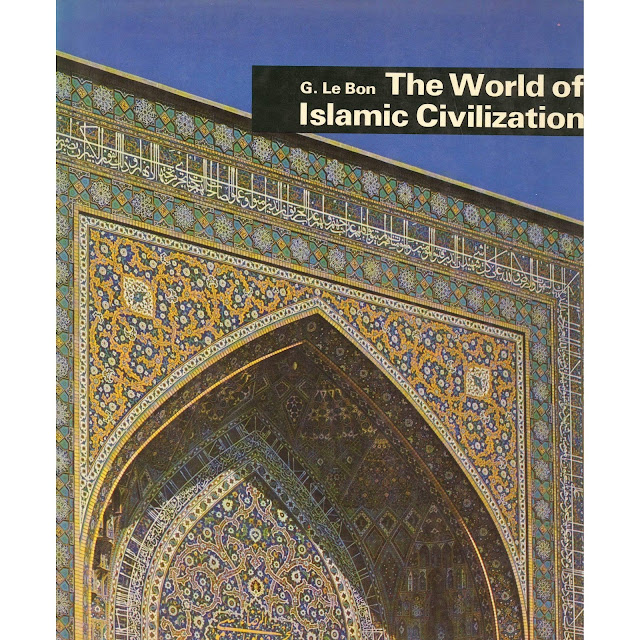Abú Hámid al-Ghazálí "Srdce / Heart" *
"Poznání sebe sama je klíčem k poznání Boha, neboť jak praví hadíth: Ten, kdo zná sám sebe, zná Boha, a jak je psáno v Koránu: Ukážeme jim znamení Svá ve všech světa končinách i v nich samých, dokud se jim neobjasní pravda. Vždyť nic ti není bližšího než ty sám, a jestliže neznáš sám sebe, jak bys mohl znát cokoli jiného?…
Prvním krokem k sebepoznání je vědět, že se skládáš z vnějšího tvaru, zvaného tělo, a z vnitřního jsoucna, jež se nazývá srdce nebo duše. „Srdcem“ nemyslím sval umístěný nalevo v hrudníku, ale to, co využívá tvých všech dalších schopností jako nástroj a služebníků. Ve své skutečnosti nepatří k viditelnému, nýbrž k neviditelnému světu, a na tento svět přišlo tak, jako přichází do cizí země návštěvník za obchodem, a brzy se zase vrátí do své vlasti. Poznání tohoto jsoucna a jeho vlastností je klíčem k poznání Boha.
Určitou představu o realitě tohoto srdce či ducha může člověk získat, když zavře oči a zapomene na všechno kolem kromě své jedinečnosti. Takto postřehne i povahu této nekonečnosti, směřující do nekonečna. Zákon však zapovídá bádat příliš úporně o podstatě ducha. V Koránu je psáno: A vyptávat se tě budou na ducha. Odpověz: Duch přichází z rozkazu Pána mého a bylo vám dáno z vědění jen nemnoho. Víme jen tolik, že je nedělitelnou podstatou, patřící k řízenému světu, a že netrvá od věčnosti, nýbrž byl stvořen. Schopnost kráčet cestou náboženství není podmíněna přesnou filosofickou znalostí ducha, ale spíše se dostaví jako výsledek sebekázně a vytrvalosti na této cestě, jak praví Korán: Ty, kdož kvůli nám se usilovně snažíš, ty věru povedeme po cestách Svých.
Při tomto duchovním džihádu – či úsilí -, jímž lze dospět k poznání sebe sama a Boha, si lze tělo představit jako království: duše je král a různé smysly a schopnosti tvoří vojsko. Rozum můžeme označit za vezíra či prvního ministra, vášeň za daňového výběrčího a hněv za drába. Pod pláštíkem výběru daní je vášeň neustále připravena začít rabovat pro vlastní užitek, zatímco hněv má stálý sklon počínat si drsně a krutě. Oba – daňového výběrčího a drába – je nutno držet v podřízenosti vůči králi, avšak nezabíjet je ani nevyvyšovat, neboť mají své vlastní úkoly. Jestliže však vášeň a hněv opanují rozum, pak nevyhnutelně utrpí duše. Duše, jež dovolí, aby nižší schopnosti nabyly vrchu nad vyššími, je jako ten, kdo by předhodil anděla psům nebo muslima tyranii nevěřícího. Člověk má své démonické, živočišné a andělské vlastnosti, jejich pěstěním si tvoří charakter. Ten se pak objeví v soudný den viditelnými podobami: smyslní se objeví jako vepři, krutí jako psi a vlci a čistí jako andělé. Cílem mravní kázně je očisťovat srdce od rzi vášně a hněvu, aby jako jasné zrcadlo odráželo světlo Boží…
Našich pět smyslů je jako patero dveří do vnějšího světa. Podivuhodnější je však srdce, jehož okno se otevírá do neviditelného duchovního světa. Otevírá se, když člověk spí a jeho smyslové vnímání je uzavřeno, tehdy člověk přijímá dojmy z neviditelného světa a někdy také předtuchy budoucnosti. V srdci se mu zrcadlí obrazy zaznamenané na Tabuli osudu (lawh)… Toto okno v srdci se otevírá také při prorocké inspiraci, kdy v mysli vyvstanou intuice nesdělené žádnou z cest smyslových počitků. Čím více se člověk očisťuje od chtíčů a soustřeďuje mysli na Boha, tím lépe se uvědomí takovéto intuitivní podněty. Ti, kdo si jich nejsou vědomi, nemají právo popírat jejich skutečnost."
Abú Hámid al-Ghazálí (z. 1111) „Alchymie štěstí (ar. Kímijá-je as´ádat)" (1097)
překlad Luboš Kropáček
*Text byl převzat z knihy "Súfismus: dějiny islámské mystiky" L. Kropáček (Vyšehrad 2008)
---------------------------------------------------------
Abū Ḥāmid al-Ghazālī "Heart"
Knowledge of self is the key to the knowledge of God, according to the saying: "He who
knows himself knows God," and, as it is written in the Koran, "We will show them Our signs in the world and in themselves, that the truth may be manifest to them." Now nothing is nearer to thee than thyself, and if thou knowest not thyself how canst thou know anything else?...
The first step to self-knowledge is to know that thou art composed of an outward shape, called the body, and an inward entity called the heart, or soul. By "heart" I do not mean the piece of flesh situated in the left of our bodies, but that which uses all the other faculties as its instruments and servants. In truth it does not belong to the visible world, but to the invisible, and has come into this world as a traveller visits a foreign country for the sake of merchandise, and will presently return to its native land. It is the knowledge of this entity and its attributes which is the key to the knowledge of God.
Some idea of the reality of the heart or spirit, may be obtained by a man closing his eyes
and forgetting everything around except his individuality. He will thus also obtain a glimpse of the unending nature of that individuality. Too close inquiry, however, into the essence of spirit is forbidden by the Law. In the Koran it is written: "They will question thee concerning the spirit. Say: 'The Spirit comes by the command of my Lord'." Thus much is known of it that it is an indivisible essence belonging to the world of decrees, and that it is not from everlasting, but created. An exact philosophical knowledge of the spirit is not a necessary preliminary to walking in the path of religion, but comes rather as the result of self-discipline and perseverance in that path, as it is said in the Koran: "Those who strive in Our way, verily We will guide them to the right paths."
For the carrying on of this spiritual warfare by which the knowledge of oneself and of God is to be obtained, the body may be figured as a kingdom, the soul as its king, and the different senses and faculties as constituting an army. Reason may be called the vizier, or prime minister, passion the revenue collector, and anger the police officer. Under the guise of collecting revenue, passion is continually prone to plunder on its own account, while resentment is always inclined to harshness and extreme severity. Both of these the revenue collector and the police officer, have to be kept in due subordination to the king, but not killed or excelled, as they have their own proper functions to fulfill. But if passion and resentment master reason, the ruin of the soul infallibly ensues. A soul which allows its lower faculties to dominate the higher is as one who should hand over an angel to the power of a dog or a Mussalman to the tyranny of an unbeliever. The cultivation of demonic, animal or angelic qualities results in the production of corresponding characters, which in the Day of Judgement will be manifested in visible shapes, the sensual appearing as swine, the ferocious as dogs and wolves, and the pure as angels. The aim of moral discipline is to purify the heart from the rust of passion and resentment, till, like a clear mirror, it reflects the light of God.
His five senses are like five doors opening on the external world; but, more wonderful
than this, his heart has a window which opens on the unseen world of spirits. In the state of sleep, when the avenues of the senses are closed, this window is opened and man receives impressions from the unseen world and sometimes fore-shadowings of the future. His heart is then like a mirror which reflects what is pictured in the Tablet of Fate. ...
This opening of a window in the heart towards the unseen also takes place in conditions approaching those of prophetic inspiration, when intuitions spring up in the mind unconveyed through any sense-channel. The more a man purifies himself from fleshly lusts and concentrates his mind on God, the more conscious will he be of such intuitions. Those who are not conscious of them have no right to deny their reality.
Abū Ḥāmid Muḥammad ibn Muḥammad al-Ghazālī (d.1111)
the text is an excerpt from "The Alchemy of Happiness"





_a.jpg)
